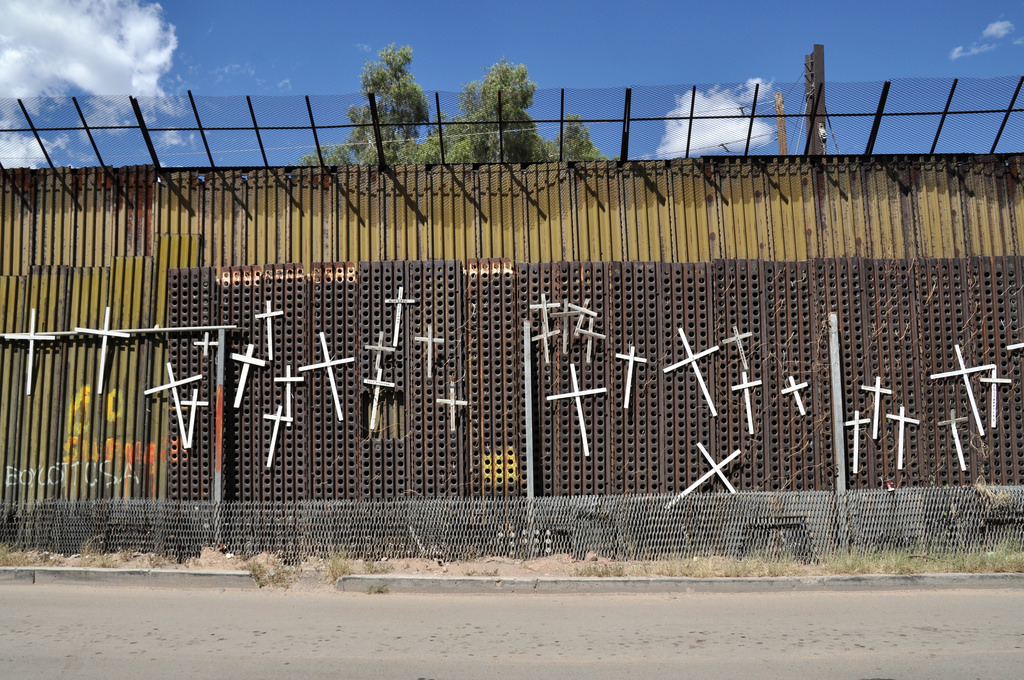When I was invited to preach on John 3 recently,1 I had the stories and the predicament of undocumented immigrants in the U.S. very much on my mind. As I worked with the text and was inspired by liberation theologian Frederick Herzog’s translation of John 3:3,2 I developed an alternate translation of Jesus’ words to Nicodemus: “Very truly, I tell you, no one can see the kingdom of God unless he or she becomes an undocumented immigrant.”
But what led me to that point? Why re-interpret a much beloved passage? Just to cause trouble, stir the pot, or insert politics into the pulpit?
It starts with the Bible, and the ways that Jesus connects with stories from everyday life. As Matt Skinner points out, “the Bible provides the better ‘way in’ for talking about poverty, compassion, human well-being, care for creation, and justice.”3
I work for Agora, a lay school of ministry of the Evangelical Lutheran Church in America that specializes in training leaders for immigrant and multicultural congregations.
About a year ago, I was leading an introductory Bible course in Spanish for Latino congregants. We met in the evenings once every other week. The dynamic was that we would first watch an online video previously recorded by an instructor and then I would facilitate the discussion of the class.
In one session, after introducing the historical books of the Old Testament, the video prompted us to take a moment to comment on the migration experiences we’d had in our lives, and to consider if our faith had played any role in them.
To my surprise, the participants had never told those stories to each other, even when they had known each other for quite some time. So we spent more than an hour sharing our stories. In fact, we went on with those stories until the end of the class, and I had to put aside my plan for the session.
For each participant, the process of taking the decision to come to the U.S., of preparing for the move, of finding the most convenient way of doing it, and then actually embarking on the venture of crossing the border, had been long and painful and incredibly demanding. At multiple points along the journey, they could have given up or they could literally have been killed.
Their faith and their relationship to God had been the only thing in which they had found unconditional and incorruptible support. They had all gone through moments of extreme darkness in which the presence of God had not manifested itself with any other sign than the memory of God’s promises contained in the Bible.
One of the promises they had recalled in those difficult moments was the one from John 3:16. They had experienced their arrival to the U.S. as nothing short of a new birth.
I will never forget that evening. It was awe-inspiring to listen to those incredible, harrowing stories of survival that led to strengthened faith. It was a magical time spent together, with silence, intense listening, tears and laughter, and we experienced a renewed sense of communion with one other.
It’s with that evening in mind that I read — and re-translated — John 3. To me, inserting “unless we become undocumented immigrants” into the translation is both pertinent to our context and consistent with a Jesus who often comforts the afflicted and afflicts the comfortable. It puts listeners in the same interpretive framework as Nicodemus, wondering “How can anybody become an undocumented immigrant when he or she is an American citizen, a legal resident, or holds a valid non-immigrant status?”
What this re-framing does is help listeners put themselves in the place of undocumented immigrants who went through hell in order to come to the U.S. We can try to:
- See the unhealed wounds many undocumented immigrants have to carry and imagine ourselves having to carry similar unhealed wounds.
- Internalize the insights of the undocumented immigrants who have known too many insults and still are called awful names.
- Picture ourselves living every day under constant threat of being deported and separated from loved ones.
- Think of all the risks that undocumented immigrants expose themselves to and have to expose others to every day when they drive to work without driver’s licenses or car insurance, and ask whether we have given them any other option.
Finally, we can ask ourselves if we are repeating prejudices regarding people with whom we don’t have any personal relationship, and we can ask ourselves if there is any hatred or bigotry in our hearts.
This is an afflicting, but also, a helpful and beneficial exercise. Perhaps it will make citizens appreciate those privileges and opportunities not as merits we can boast of, but rather as blessings from God that should help us empathize with and declare our support for and our solidarity with those who don’t enjoy similar status.
As Karoline Lewis stated so well, “faith is not a possession, not something that one gets, not something that one has — it is something that one does.”4Faith is the ongoing work and process of identifying with the least of our brothers and sisters and of acknowledging our own vulnerabilities, mistakes and struggles, and it is a work and a process that God again and again recommits us to with God’s “surprising, all encompassing, unasked for, and undeserved” love.5
Notes:
[1] Access the full text of the author’s March 12, 2017, sermon for Second Sunday in Lent here: https://drive.google.com/file/d/0B8SJC6ItnhwwRklQR3Q2bXZLX3M/view?usp=sharing
[2] “No man can see the kingdom of God unless he becomes black,” Frederick Herzog, Liberation Theology: Liberation in the Light of the Fourth Gospel (New York: The Seabury Press, 1972), 61.
[3] Matt Skinner, “Preaching in a Time of Political Anxiety,” March 14, 2017. https://www.workingpreacher.org/craft.aspx?post=4837
[4] Karoline Lewis, “Commentary on John 3:1-17,” February 17, 2008. https://www.workingpreacher.org/preaching.aspx?commentary_id=43
[5] David Lose, “Commentary on John 3:1-17,” March 20, 2011. https://www.workingpreacher.org/preaching.aspx?commentary_id=903

